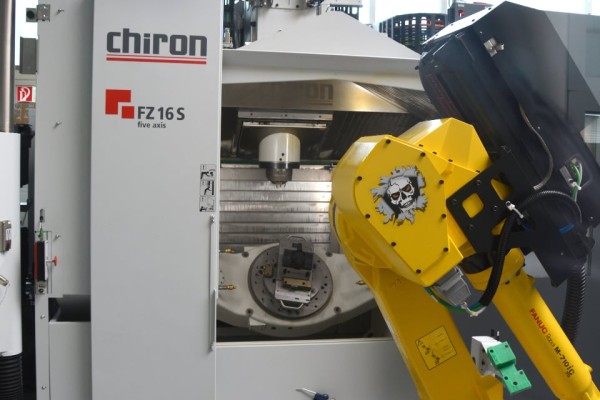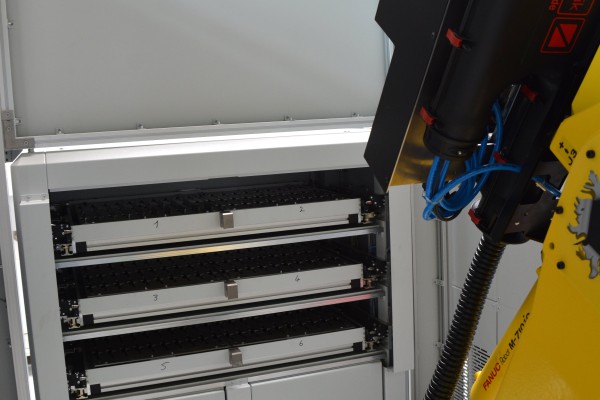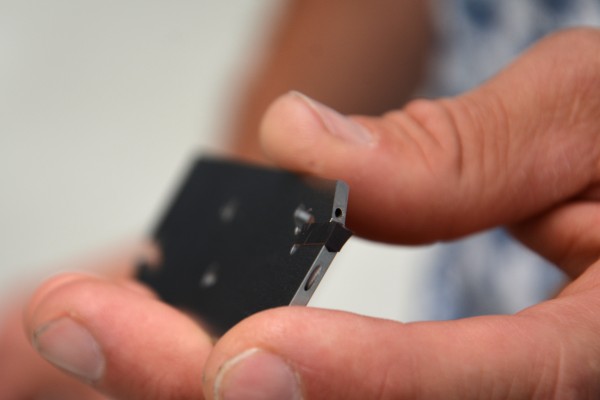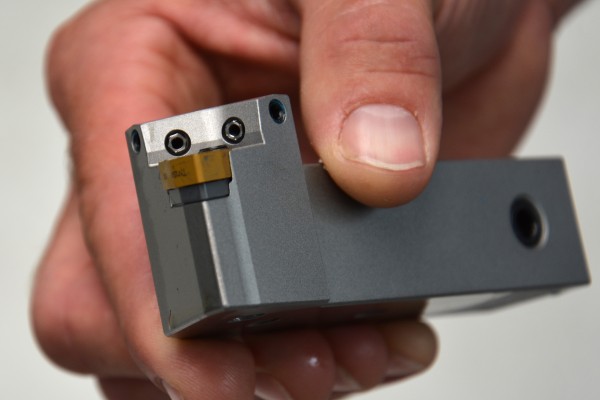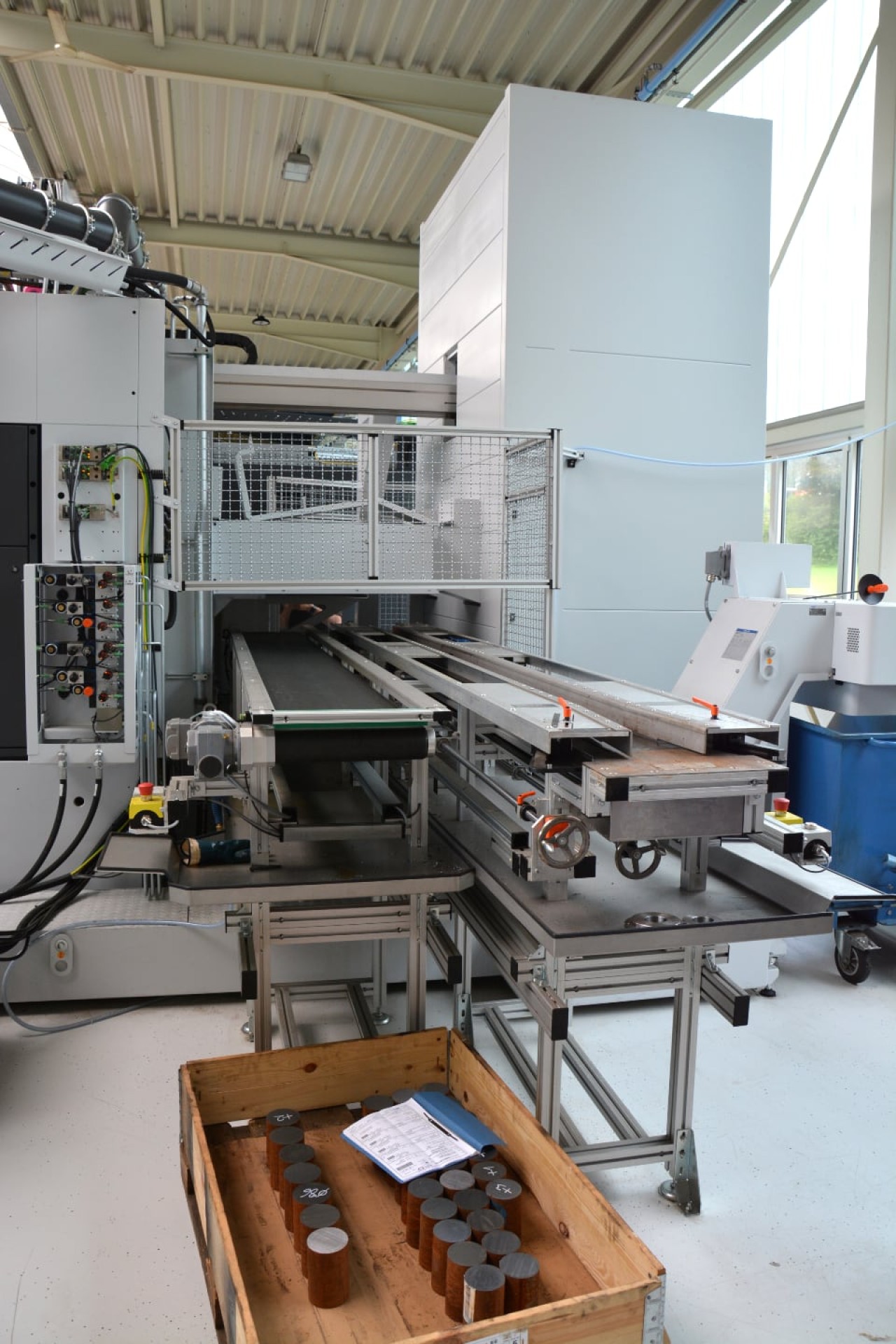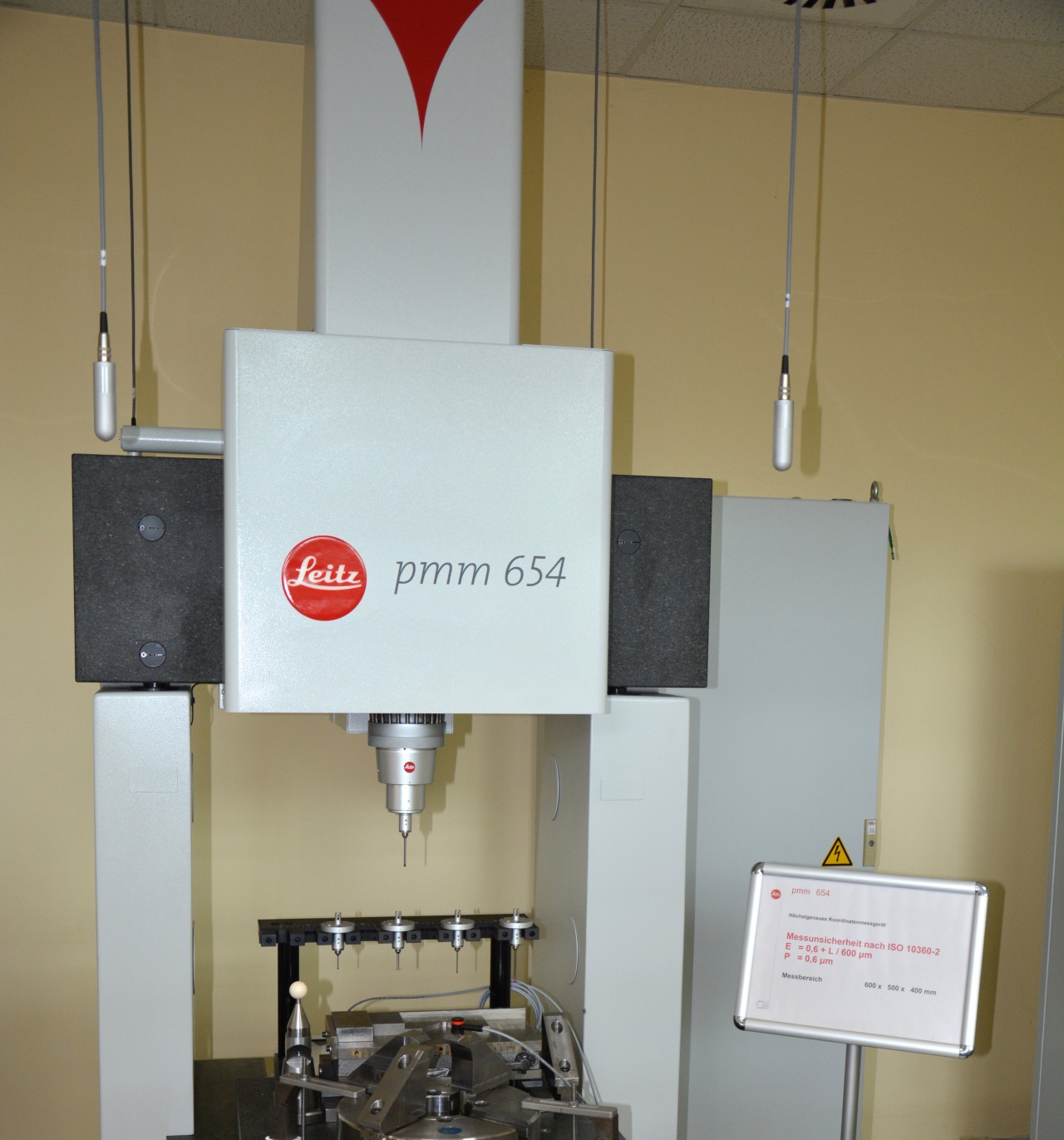Words
and text: Helmut Damm, Workshop + Operation
There is a plethora of technology in the
›Hinterland‹, as the region between Wetzlar and Kassel (in central Germany) is
known. Hundreds of small and medium enterprises are located in the area,
forming a sort of metalworking cluster. Right in the heart of this activity, in
Steffenberg, is Aleit GmbH, developing, constructing and manufacturing
outstanding fixed and rotating precision tools for milling and turning. If you
haven't heard of them, that's probably because Aleit is a behind-the-scenes
company. Their customers include a growing number of leading (and very
well-known) international tool manufacturers and traders, rather than end
customers. The 40-person company has all the expertise in construction and
manufacturing to produce smart, almost-revolutionary tool concepts, but it
doesn't have the capacity for a global sales force targeting end customers.
This makes Aleit a kind of
»Hidden Hidden Champion« in the Hinterland.
Ideas
alone are not enough – it's all in the execution
The
business, which began operation in 1961, has always focused on the
extraordinary and the ambitious. Holger Aleit, son of company founder Gerhard
Aleit and father of today's CEO Björn Aleit says, »Right from the start, we
weren't looking to manufacture standard products; we were looking to work in
the most-demanding field possible in terms of technicality. Our customers still
recognize this today, because we not only develop creative tool solutions, we
offer a comprehensive, fully documented process, from the moment we receive an
order right up to the delivery of an operational tool – including details such
as customer-specific labeling and packaging. That's another of our USPs. It's
not enough to simply have a fantastic idea for a better tool. You need the
expertise to really technically manufacture this idea and execute it in an
economical way. Innovations drive our business, so we cooperate closely with
the Fraunhofer Institute and other similar institutes. This means we always
have our finger on the pulse. In terms of manufacturing, for milling our
variants we work with batch sizes between 1 and 200 and we currently rely on
complete-machining with automated machining centers and milling-turning
machines from the CHIRON Group.«
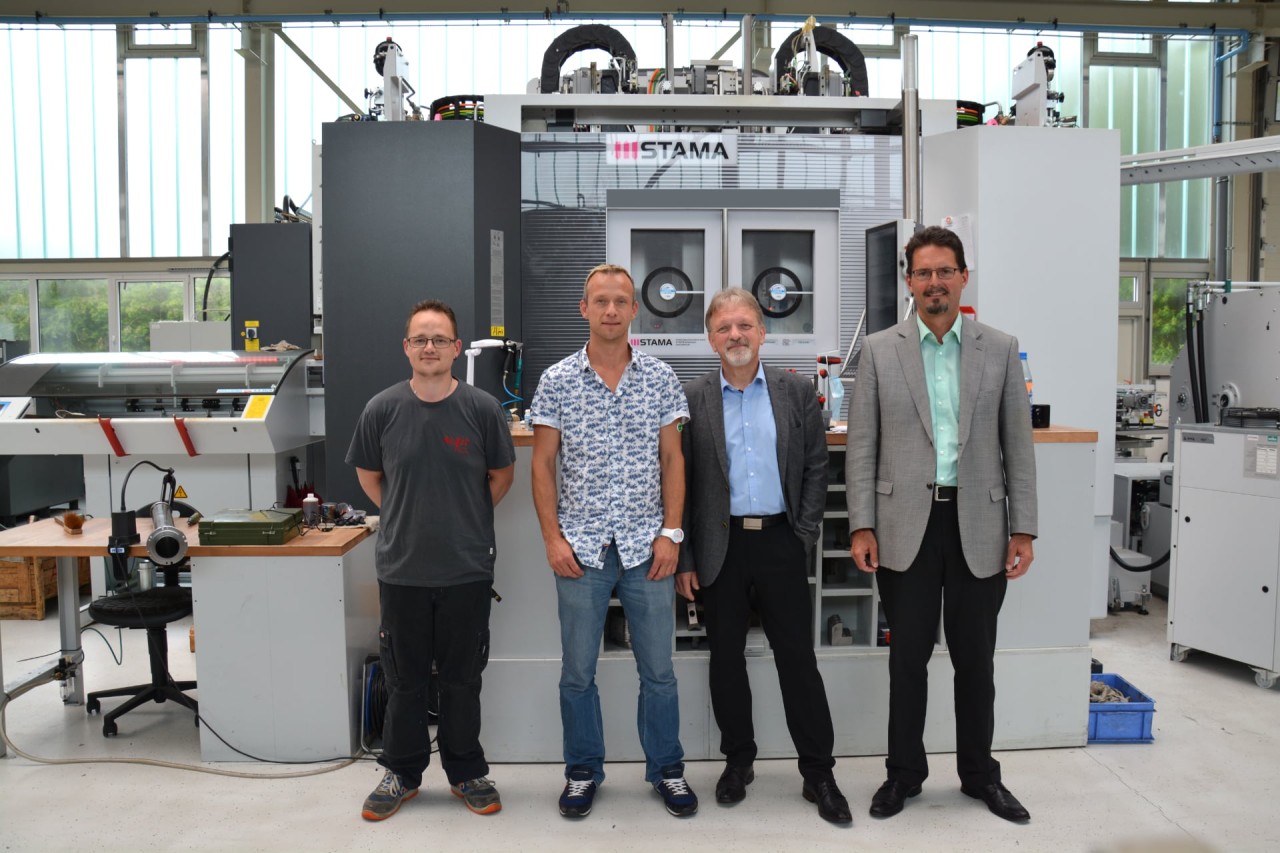
Automated milling-turning complete machining par excellence: Daniel Scheiter, Björn Aleit, Roland Ranisch and Gerhard Schweicker (from left) are pleased with the successful project.
CEO Björn Aleit trained as a milling/cutting
machine operator on milling technology and then was educated in Mechanical
Engineering. He worked in various roles in his family company and took over the
Executive Board at the end of 2017. He knows the company history inside out,
and they have been focusing on precision tools since 1985. Three ›House
specials‹ define the business today and their investment decisions.
Base
frames for milling tools with inserts
Björn
Aleit: »We started by specifically designing and manufacturing the optimum tool
bodies, first and foremost the insert seats, around indexable inserts that
customers provided us with. The requirements for these steadily increased.
Tools, for example, for optical industries with axial running and concentricity
of ≤ 5 µm are de rigueur.«
Modular
tool interfaces
As time went on, the Aleit team began to
wonder why they only focused on the cutting side of the tool and didn't also
consider the back-end, taking on and innovating for the interface to the
spindle, along with the highly complex interior. Today, in Steffenberg, the
team works on all the known interfaces in the market: SK, HSK, PSC (Capto), TS
(KM), ABS, VDI, etc.
CHIRON
FZ 16 S five axis machining center: The quick-to-retool, flexible robot
automation with inventory drawers (right) ensures high levels of productivity.
With
the removable blades with interior cooling from above and below (left) and the
clamping-turning holder with coolant-lubricant supply via the shaft to the
blade (right), problem-solver Aleit had landed two hole-in-ones.
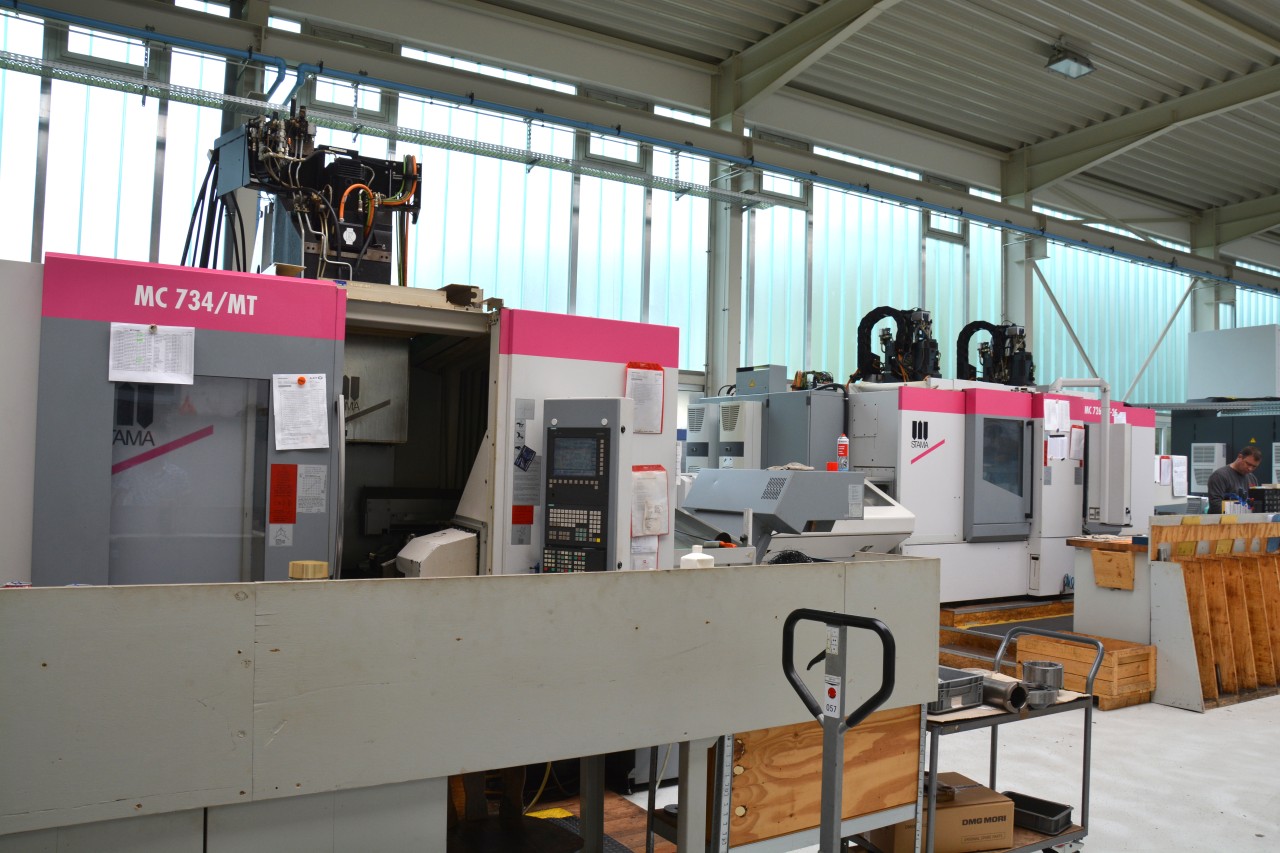
Endurance runner: Both STAMA milling-turning centers perform reliably and productively.
Parting
and grooving tools with internal coolant supply and holder
For a long time, Aleit manufactured square
shaft holders for turning in the form of clamping-turning holders and
blade-mounts with various interfaces. It was always a fly in the ointment for the
experts, that the interference contours impeded the feed of the coolant to the
key area. Björn Aleit says, »The problem can't be solved with the standard
cooling in the VDI tool holder. But the coolant is on the holder to use. So, we
developed a sophisticated drill system, which enables the coolant-lubricant to
be guided through the blade from above and below with up to 80 bar pressure
until it reaches the open side of the blade, even for modular systems. The
effects on service life and chip breaking are significant.« Aleit submitted
this idea for a patent, changing the international market as the idea was
adopted by many big tool suppliers as their standard approach.
Complete
machining and automation
In 2007, the firm first made contact with STAMA,
which was already a 100% subsidiary of the CHIRON Group SE. Their research for
efficient and precise complete machining led them to STAMA and they purchased a
milling-turning center MT 726 2C with twin traveling columns. Gerhard
Schweicker, Area Sales Manager for the CHIRON Group explains »The MT 726 2C had
the USP back then, that there were two, five-axis travel column units on one
base frame with integrated turning functionality based on a turning spindle.
The new generation is on a mineral cast base frame with a mobile gantry design.
This allows both short bars and chuck parts to be loaded from above, and then
clamped, transferred and machined flexibly by the spindle. The transfer from
OP10 to OP20 is always highly precise. For turning spindle there is one full
milling spindle and up to 64 tools ready to use, enabling a totally new kind of
heavy-duty machining in comparison to the classic counter-spindle turning
machine with a maximum of 12 tools on the revolver. It doesn't get more
flexible than that.«
Thereafter, the firm also purchased a MT 734
from STAMA. Regarding long-term, largely trouble-free shift operation of the
machines, Björn Aleit talks about his »reliable marathon runners which are
slowly getting older, but have been a fantastic investment.«
Investment
in lifetime flexibility
The next time Aleit needed to invest was in
connection with the complete machining of PSC tools with their various shaft
interfaces. The original manufacturers had previously failed to manufacture the
complex internal contours including eccentric geometry from one cast. For this
task, Aleit selected an F Z16 S five axis which is sold in a package with an
individually tailored robot-automation cell. The extremely stable machine
concept with a swivel bridge mounted on both sides, was impressive from the
start. To this day, the intelligent and, above all, highly flexible and
quick-to-change automation unit makes the big difference to productivity.
Fully automated six-sided
complete machining – the supply and removal belts of the STAMA milling-turning
center transport the heavy parts weighing up to 25 kg to the integrated
workpiece gripper and back again afterwards. On the right is the connected
auxiliary tool magazine with space for 240 tools.
Ten times more accurate
than the manufacturing tolerances – the comprehensive documentation of added
value at Aleit also includes the climate-controlled 3D coordinate measuring
system from Leitz.
Milling-turning
complete machining
Aleit chose the current series of milling-turning
centers with mobile gantry design from STAMA, with the highest level of
configuration. Roland Ranisch, Sales partner at the CHIRON Group says, »In the
end, it was about the universal combination of round profiles, right-angled
profiles and chuck parts which need completely automated machining using millturn.
The two-sided clamping takes place with automated, correctly positioned
internal transfer and five-axis, interpolated processes, so that the components
leave the machine partially finished. Many products then go through the
hardening process, which is followed by a complex grinding process on an
ultra-modern CNC cylindrical grinding machine in a climate-controlled room. The
six-sided machining based on multitasking ensures that machining can take place
on the front and back without a loss in quality.«
It's possible to work with bars up to a
diameter of 102 mm, while chuck parts can have a diameter up to 300 mm. The
supply and discharge belts can move individual parts weighing up to 25 kg to
and from the workpiece gripper, which is located between the two working
chambers and manages the transfer from the main spindle to the counter spindle
for chuck parts. The machine has an autonomous tool inventory of 64 tools per
working chamber and an additional, up-to-240 tools in the auxiliary magazine
which is connected via shuttle.
In response the heat transfer or the mutual
influence of the machine chambers while working, regarding vibrations – machine
operator and foreman Daniel Scheiter has a clear statement, »It promises a lot,
but in this case, it lives up to our expectations. I never experience either
problem in my daily work.«
Customer-focused
even in the future
Aleit is, of course, ISO 9001 certified and
is therefore very well-positioned today. It now has its own product range that
fills an entire catalog. It is also noteworthy, that the firm completely tests
all finished parts including documentation on a Leitz climate-controlled and
decoupled 3D coordinate-measuring device pmm 654, with a measurement
uncertainty of only 0.6 µm, the option for burnishing, the various types of
beam (with corundum, glass balls or stainless steel balls), cylindrical
grinding and laser marking.
But Aleit always has its eye on the future,
because the challenges are only getting more demanding. Digitalization is a hot
topic. As well as DNC-operation, after an ERP-update, Aleit will look to fully
utilize the possibilities of the digital systems in the CHIRON Group SmartLine
portfolio. They are surely on the right track with the idea of
sensor-protected, intelligent tools for a digital fingerprint across the entire
process. With this in mind, a continuing, trusting collaboration between Aleit
and the CHIRON Group is guaranteed.
For more information: www.aleit.de

